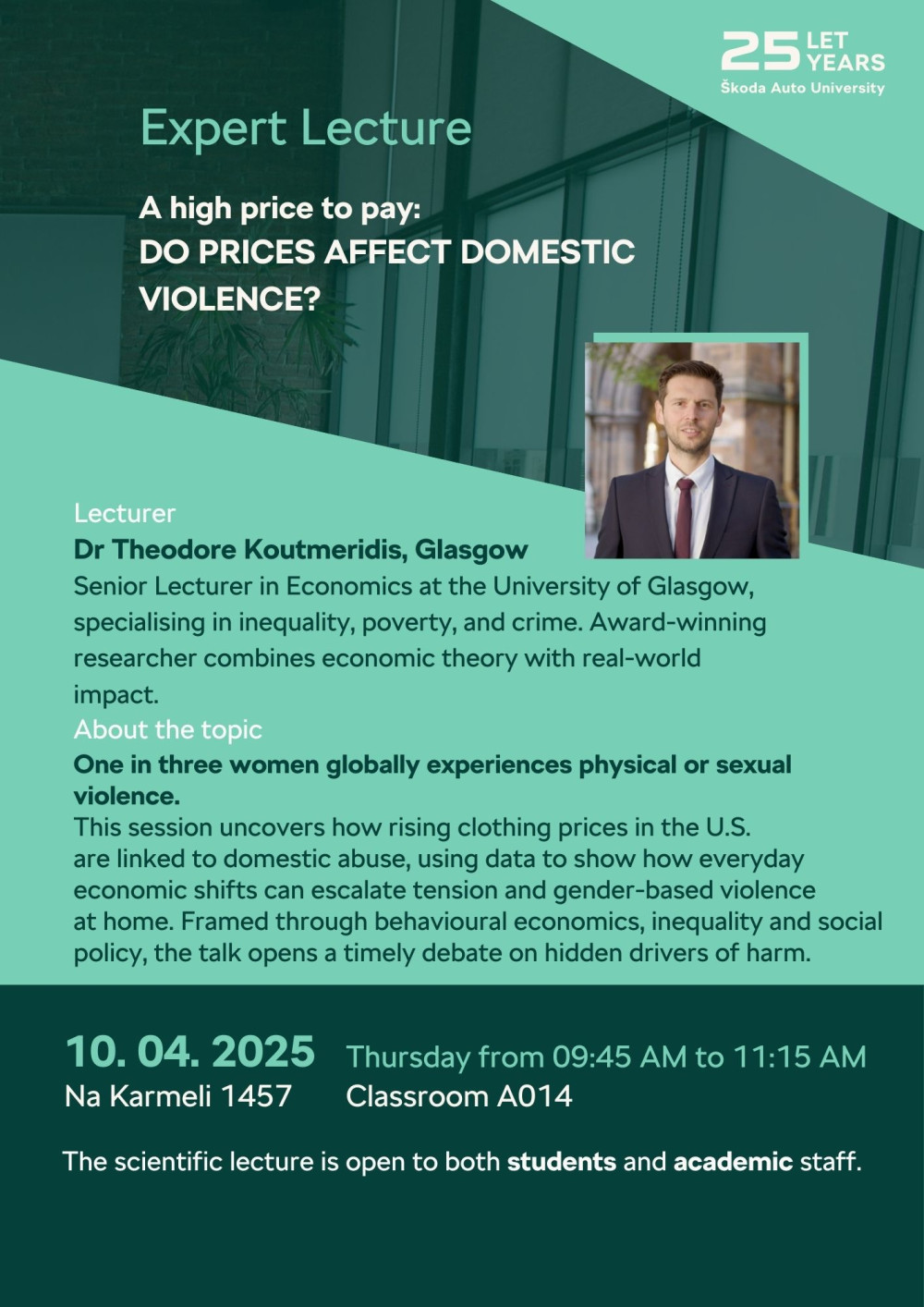10.04.2025 Place Na Karmeli A014, time: 9:45 - 11:15

Medallion of lecturer at SAU - Theodore Koutmeridis
Theodore Koutmeridis is a Senior Lecturer in Economics at the Adam Smith Business School at the University of Glasgow, where he coordinates the Behaviour, Structure and Interventions network for interdisciplinary research. In his research he focuses on inequality, poverty and crime, for which he has been recognised with various awards, among others the British Academy Rising Star Award and the RSE Henry Duncan Medal, which according to the Royal Society of Edinburgh, he has been awarded ‘‘for his outstanding work in the field of economics where he combines a clear mastery of the microeconomic methodology, a keen instinct for its empirical applications and a deep commitment to engagement activities.’’ He has been featured in the media and various symposia, such as his “Underground Economy” TEDx talk and his “Crime and Prices” video. His work has been awarded grants for research, teaching, impact and engagement, and is currently co-funded via an ESRC-DFID grant of £700,000 for education accountability fieldwork in disadvantaged Indian schools. He is affiliated with the Institute of Labor Economics IZA and he was a Visiting Scholar at Columbia University.
Extra-semestral course Psychology, Economics and Experiments explores the interaction between psychology and economics, and using experiments aims to enhance our understanding on how humans behave, choose and prosper.
Psychology, Economics and Experiments is a course that examines key assumptions about human agents that are grounded in empirical work from the laboratory or the field, which ultimately will help us understand some of the most complex social phenomena. It argues that the pressing issues of our time, from health challenges and widening inequalities to violence and the climate crisis, require a holistic approach that spans beyond the conventional disciplinary and methodological boundaries. This course focuses on conceptual foundations (core assumptions, theories and models), problem solving and applications to topics, such as reward schemes in labour markets, inequality and poverty, and criminal behaviour. The emphasis will be on insights about human behaviour and institutions that are new, interesting and policy-relevant.


